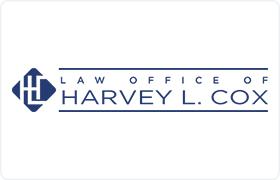Rosebud Estate Lawyer, Texas
Sponsored Law Firm
-
 x
x

Click For More Info:
-
Law Office of Harvey L. Cox
1600 Lake Air Drive Suite 102 Waco, TX 76710» view mapEstate Law, Power of Attorney A New Perspective On Estate Planning
Our Family Estate & Business Planning focuses on protecting your assets from creditors, predators, lawsuits, judgments, liens, and greedy relatives.
800-795-7741
Jack M. Tarver
Dispute Resolution, Corporate, Business Organization, Wills & Probate
Status: In Good Standing *Status is reviewed annually. For latest information visit here
Jimmy Earl Thigpen
Wills, Elder Law, Business & Trade, Commercial Real Estate
Status: In Good Standing *Status is reviewed annually. For latest information visit here Licensed: 52 Years
Benjamin Courtney Cuba
Commercial Real Estate, Wills, Business & Trade, Business
Status: In Good Standing *Status is reviewed annually. For latest information visit here Licensed: 61 Years
Devon St. Clair Linzy
Tax, Wills, Gift Taxation, Elder Law
Status: In Good Standing *Status is reviewed annually. For latest information visit here Licensed: 12 Years
Patrick John Ridley
DUI-DWI, Estate Planning, Family Law, Criminal, Estate
Status: In Good Standing *Status is reviewed annually. For latest information visit here Licensed: 52 Years
Stephen G. Johnson
Commercial Real Estate, Wills, Elder Law, Business & Trade
Status: In Good Standing *Status is reviewed annually. For latest information visit here Licensed: 48 Years
Hollis C. Lewis
DUI-DWI, Estate Planning, Family Law, Government,
Status: In Good Standing *Status is reviewed annually. For latest information visit here Licensed: 53 Years
Clyde W. Chandler
Wills, Estate, Family Law, Criminal
Status: In Good Standing *Status is reviewed annually. For latest information visit here Licensed: 30 Years
William T. Wilson
Juvenile Law, Estate Planning, Family Law, Commercial Real Estate, Business
Status: In Good Standing *Status is reviewed annually. For latest information visit here Licensed: 55 Years
Mark Staley Whitaker
Litigation, Wills, Gift Taxation, Business & Trade
Status: In Good Standing *Status is reviewed annually. For latest information visit here
 Harvey L. Cox Waco, TX
Harvey L. Cox Waco, TX Practice AreasExpertise
Practice AreasExpertise